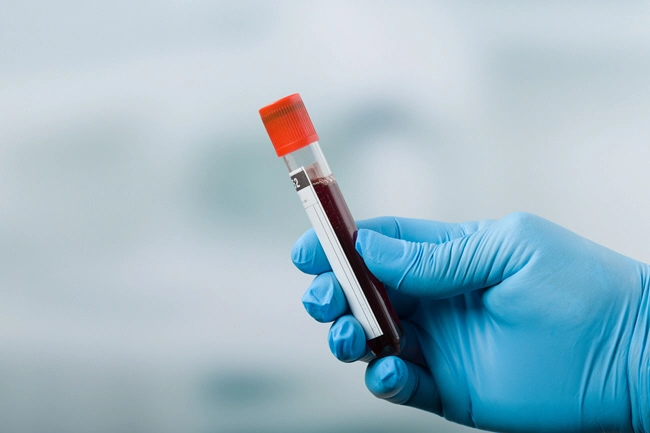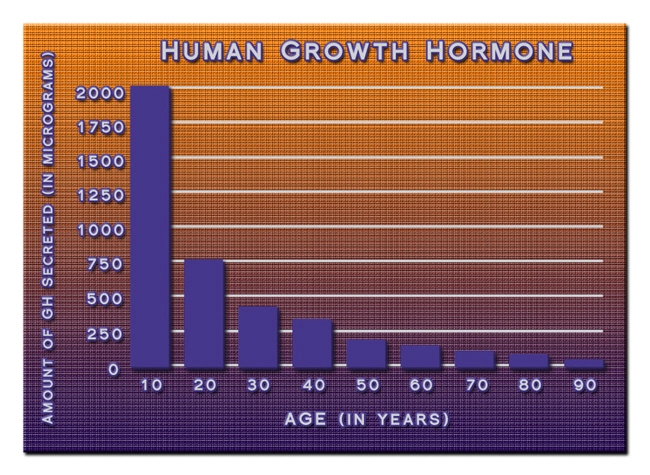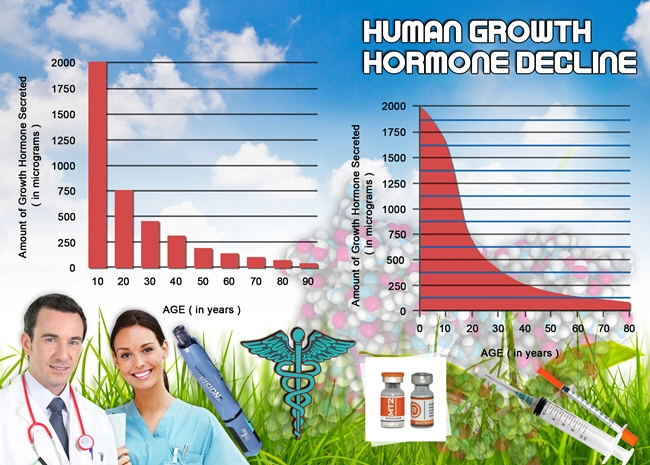
Introduction
Hypopituitarism, a condition characterized by the insufficient production of one or more pituitary hormones, presents a significant health concern, particularly during pregnancy. Recent studies have begun to illuminate a potential association between hypopituitarism and preeclampsia, a serious pregnancy complication characterized by high blood pressure and signs of damage to another organ system, most often the liver and kidneys. This article delves into the critical need for vigilant hormonal monitoring in pregnant women to mitigate the risks associated with these conditions.
Understanding Hypopituitarism
Hypopituitarism arises from the pituitary gland's inability to produce adequate levels of hormones essential for regulating various bodily functions, including growth, metabolism, and reproductive processes. Symptoms can be subtle and may include fatigue, weakness, and changes in weight or sexual function. In pregnant women, hypopituitarism can complicate gestation and increase the risk of adverse outcomes.
The Connection to Preeclampsia
Preeclampsia, a condition that affects approximately 5-8% of pregnancies in the United States, is a leading cause of maternal and fetal morbidity and mortality. Emerging research suggests that hypopituitarism may contribute to the development of preeclampsia. The exact mechanisms are not fully understood, but it is hypothesized that the hormonal imbalances caused by hypopituitarism may disrupt the normal physiological adaptations required for a healthy pregnancy, thereby increasing the risk of preeclampsia.
The Importance of Hormonal Monitoring
Given the potential link between hypopituitarism and preeclampsia, it is imperative for healthcare providers to implement comprehensive hormonal monitoring throughout pregnancy. Regular assessments of pituitary hormone levels, such as thyroid-stimulating hormone (TSH), adrenocorticotropic hormone (ACTH), and growth hormone (GH), can help identify deficiencies early and guide appropriate interventions.
Strategies for Effective Monitoring
Effective monitoring involves a multi-faceted approach. Firstly, pregnant women should undergo baseline hormonal assessments early in their pregnancy to establish a reference point. Subsequent monitoring should be conducted at regular intervals, with increased frequency if any abnormalities are detected. Additionally, healthcare providers should be vigilant for symptoms suggestive of hypopituitarism, such as persistent fatigue or unexplained weight changes, and promptly investigate these signs.
Interventions and Management
Upon detection of hypopituitarism, tailored interventions can be implemented to manage the condition and reduce the risk of preeclampsia. Hormone replacement therapy (HRT) may be necessary to restore normal hormone levels and support a healthy pregnancy. Close collaboration between endocrinologists and obstetricians is crucial to ensure that the treatment plan is both effective and safe for the mother and fetus.
Educating Patients and Healthcare Providers
Education plays a pivotal role in the early detection and management of hypopituitarism and preeclampsia. Pregnant women should be informed about the signs and symptoms of these conditions and encouraged to seek medical attention if they experience any concerning symptoms. Similarly, healthcare providers must stay abreast of the latest research and guidelines to provide the highest standard of care.
Conclusion
The potential link between hypopituitarism and preeclampsia underscores the importance of hormonal monitoring in pregnant women. By implementing regular assessments and promptly addressing any hormonal imbalances, healthcare providers can significantly reduce the risk of adverse outcomes. As research continues to unravel the complexities of these conditions, it is essential for the medical community to remain vigilant and proactive in their approach to maternal health.
Contact Us Today For A Free Consultation
Dear Patient,
Once you have completing the above contact form, for security purposes and confirmation, please confirm your information by calling us.
Please call now: 1-800-380-5339.
Welcoming You To Our Clinic, Professor Tom Henderson.

- Hypopituitarism and Cardiovascular Health: Unraveling the Intricate Links in American Males [Last Updated On: February 25th, 2025] [Originally Added On: February 25th, 2025]
- Hypopituitarism and Metabolic Syndrome in American Males: An Emerging Health Crisis [Last Updated On: March 5th, 2025] [Originally Added On: March 5th, 2025]
- American Males' Experiences with Hypopituitarism: Challenges and Coping Strategies [Last Updated On: March 8th, 2025] [Originally Added On: March 8th, 2025]
- Unveiling the Cardiovascular Risks: Hypopituitarism and Heart Disease in American Males [Last Updated On: March 16th, 2025] [Originally Added On: March 16th, 2025]
- Unraveling the Connection: Hypopituitarism and Uterine Fibroids in American Males [Last Updated On: March 16th, 2025] [Originally Added On: March 16th, 2025]
- Understanding Hypopituitarism and Its Impact on Male Reproductive Health [Last Updated On: March 16th, 2025] [Originally Added On: March 16th, 2025]
- Unraveling the Hormonal Nexus: Hypopituitarism and Its Implications for Breast Cancer in American Males [Last Updated On: March 16th, 2025] [Originally Added On: March 16th, 2025]
- Hypopituitarism and Autoimmune Disorders: Insights and Management in American Males [Last Updated On: March 16th, 2025] [Originally Added On: March 16th, 2025]
- Hypopituitarism's Cognitive Impact on American Males: Memory, Attention, and Executive Function [Last Updated On: March 17th, 2025] [Originally Added On: March 17th, 2025]
- Hypopituitarism and Obesity in American Males: Hormonal Impacts and Management Strategies [Last Updated On: March 17th, 2025] [Originally Added On: March 17th, 2025]
- Hypopituitarism's Impact on Sleep in American Men: Hormonal Imbalances and Treatment [Last Updated On: March 17th, 2025] [Originally Added On: March 17th, 2025]
- Hypopituitarism in Aging American Males: Symptoms, Diagnosis, and Management Strategies [Last Updated On: March 18th, 2025] [Originally Added On: March 18th, 2025]
- Hypopituitarism and Cancer Risk in American Males: Monitoring and Management Strategies [Last Updated On: March 18th, 2025] [Originally Added On: March 18th, 2025]
- Hypopituitarism and Pituitary Tumors: Surgical Treatment and Outcomes in American Males [Last Updated On: March 19th, 2025] [Originally Added On: March 19th, 2025]
- Hypopituitarism in American Males: Impacts and Management of Mental Health [Last Updated On: March 19th, 2025] [Originally Added On: March 19th, 2025]
- Multidisciplinary Care Essential for Managing Hypopituitarism in American Males [Last Updated On: March 19th, 2025] [Originally Added On: March 19th, 2025]
- Hypopituitarism in American Males: Hormonal Impact on Skin Health and Management Strategies [Last Updated On: March 19th, 2025] [Originally Added On: March 19th, 2025]
- Hypopituitarism and Anemia in American Males: The Role of Erythropoietin Deficiency [Last Updated On: March 20th, 2025] [Originally Added On: March 20th, 2025]
- Hypopituitarism's Impact on Kidney Function in American Males: Monitoring and Management [Last Updated On: March 21st, 2025] [Originally Added On: March 21st, 2025]
- Hypopituitarism in American Males: Hormonal Imbalances and Joint Health Impacts [Last Updated On: March 22nd, 2025] [Originally Added On: March 22nd, 2025]
- Hypopituitarism and Hearing Loss: Exploring Links in American Males [Last Updated On: March 23rd, 2025] [Originally Added On: March 23rd, 2025]
- Hypopituitarism and CFS Overlap: Implications for American Males' Diagnosis and Management [Last Updated On: March 23rd, 2025] [Originally Added On: March 23rd, 2025]
- Hypopituitarism and Migraines in American Males: Hormonal Links and Treatment Strategies [Last Updated On: March 23rd, 2025] [Originally Added On: March 23rd, 2025]
- Hypopituitarism's Impact on Liver Health in American Males: Risks and Management [Last Updated On: March 23rd, 2025] [Originally Added On: March 23rd, 2025]
- Hypopituitarism in American Males: Impacts on Eye Health and Vision [Last Updated On: March 23rd, 2025] [Originally Added On: March 23rd, 2025]
- Hypopituitarism's Impact on Asthma in American Males: Hormonal Insights and Management [Last Updated On: March 23rd, 2025] [Originally Added On: March 23rd, 2025]
- Hypopituitarism's Role in Alzheimer's: Hormonal Imbalances and Cognitive Decline [Last Updated On: March 23rd, 2025] [Originally Added On: March 23rd, 2025]
- Hypopituitarism's Impact on Gastrointestinal Health in American Males: Diagnosis and Management [Last Updated On: March 24th, 2025] [Originally Added On: March 24th, 2025]
- Hypopituitarism's Impact on Muscle Strength in American Males: Diagnosis and Management [Last Updated On: March 24th, 2025] [Originally Added On: March 24th, 2025]
- Hypopituitarism and Hair Loss in American Males: Causes, Impacts, and Emerging Treatments [Last Updated On: March 24th, 2025] [Originally Added On: March 24th, 2025]
- Hypopituitarism's Impact on Osteoarthritis in American Males: A Comprehensive Analysis [Last Updated On: March 24th, 2025] [Originally Added On: March 24th, 2025]
- Hypopituitarism and Lupus Link in American Males: Diagnostic and Treatment Challenges [Last Updated On: March 24th, 2025] [Originally Added On: March 24th, 2025]
- Hypopituitarism and CKD: Pathophysiology, Monitoring, and Management in American Males [Last Updated On: March 25th, 2025] [Originally Added On: March 25th, 2025]
- Hypopituitarism in American Males: Impacts on Immune System and Management Strategies [Last Updated On: March 25th, 2025] [Originally Added On: March 25th, 2025]
- Hypopituitarism and Gout Link: Uric Acid's Role in American Males [Last Updated On: March 25th, 2025] [Originally Added On: March 25th, 2025]
- Hypopituitarism and Gallbladder Disease: Exploring Links in American Males [Last Updated On: March 25th, 2025] [Originally Added On: March 25th, 2025]
- Hypopituitarism and Liver Cirrhosis: Impacts and Management in American Males [Last Updated On: March 25th, 2025] [Originally Added On: March 25th, 2025]
- Hypopituitarism and Sjögren's Syndrome: Impacts on Exocrine Glands in American Males [Last Updated On: March 26th, 2025] [Originally Added On: March 26th, 2025]
- Exploring Hypopituitarism and MS Connection in American Males: Diagnosis and Treatment Implications [Last Updated On: March 26th, 2025] [Originally Added On: March 26th, 2025]
- Hypopituitarism and Parkinson's: Neurodegenerative Impacts on American Males [Last Updated On: March 26th, 2025] [Originally Added On: March 26th, 2025]
- Hypopituitarism and Heart Disease Risks in American Males: Diagnosis, Management, and Prevention [Last Updated On: March 26th, 2025] [Originally Added On: March 26th, 2025]
- Hypopituitarism's Impact on Pancreatitis: Risks and Management for American Males [Last Updated On: March 26th, 2025] [Originally Added On: March 26th, 2025]
- Hypopituitarism and Allergies in American Men: Exploring Hormonal and Immune Links [Last Updated On: March 27th, 2025] [Originally Added On: March 27th, 2025]
- Hypopituitarism in American Males: Stroke Risk and Hormonal Management Strategies [Last Updated On: March 27th, 2025] [Originally Added On: March 27th, 2025]
- Hypopituitarism and Fibromyalgia: Overlapping Symptoms and Diagnostic Challenges in American Males [Last Updated On: March 27th, 2025] [Originally Added On: March 27th, 2025]
- Hypopituitarism and Seizures: Neurological Links and Management in American Males [Last Updated On: March 27th, 2025] [Originally Added On: March 27th, 2025]
- Hypopituitarism and Hypertension: Impacts on Blood Pressure in American Males [Last Updated On: March 27th, 2025] [Originally Added On: March 27th, 2025]
- Hypopituitarism's Link to Ovarian Cancer: Implications for American Male Health [Last Updated On: March 27th, 2025] [Originally Added On: March 27th, 2025]
- Autoimmune Link Between Hypopituitarism and RA in American Males: Clinical Insights [Last Updated On: March 27th, 2025] [Originally Added On: March 27th, 2025]
- Hypopituitarism and Prostate Cancer: Understanding and Managing the Interplay in Men's Health [Last Updated On: March 27th, 2025] [Originally Added On: March 27th, 2025]
- Hypopituitarism and IBD in American Males: Clinical Insights and Management Strategies [Last Updated On: March 28th, 2025] [Originally Added On: March 28th, 2025]
- Hypopituitarism and Diabetes Mellitus: Impacts on Glucose Metabolism in American Males [Last Updated On: March 28th, 2025] [Originally Added On: March 28th, 2025]
- Hypopituitarism and Lipid Disorders in American Males: Risks and Management Strategies [Last Updated On: March 28th, 2025] [Originally Added On: March 28th, 2025]
- Endocrine Disorders in American Males: Hypopituitarism and Adrenal Cancer Link Explored [Last Updated On: March 28th, 2025] [Originally Added On: March 28th, 2025]
- Autoimmune Link Between Hypopituitarism and Celiac Disease in American Males [Last Updated On: March 29th, 2025] [Originally Added On: March 29th, 2025]
- Hypopituitarism and Breast Cancer Link in American Males: Hormonal Insights and Clinical Implications [Last Updated On: March 29th, 2025] [Originally Added On: March 29th, 2025]
- Hypopituitarism and Pituitary Cancer: Impact, Detection, and Management in American Males [Last Updated On: March 29th, 2025] [Originally Added On: March 29th, 2025]
- Hormonal Imbalances Linking Hypopituitarism and Thyroid Cancer in American Males [Last Updated On: March 30th, 2025] [Originally Added On: March 30th, 2025]
- Hypopituitarism and Benign Tumors in American Males: Exploring Gynecological Links [Last Updated On: April 2nd, 2025] [Originally Added On: April 2nd, 2025]
- Hypopituitarism and Testicular Cancer: Impacts on Male Fertility and Management Strategies [Last Updated On: April 2nd, 2025] [Originally Added On: April 2nd, 2025]
- Hormonal Links Between Hypopituitarism and Endometriosis in American Males: Diagnosis and Treatment [Last Updated On: April 3rd, 2025] [Originally Added On: April 3rd, 2025]
- Hypopituitarism: Impact on Female Reproductive and Vaginal Health Management [Last Updated On: April 5th, 2025] [Originally Added On: April 5th, 2025]
- Hypopituitarism and PCOS: Impacts, Diagnosis, and Integrated Management Strategies [Last Updated On: April 5th, 2025] [Originally Added On: April 5th, 2025]
- Hypopituitarism's Impact on Male Sexual Health and Erectile Dysfunction [Last Updated On: April 5th, 2025] [Originally Added On: April 5th, 2025]
- Hypopituitarism and Premature Ejaculation: Hormonal Links and Treatment Strategies in American Males [Last Updated On: April 5th, 2025] [Originally Added On: April 5th, 2025]
- Hypopituitarism's Impact on Penile Health and Male Reproductive Function [Last Updated On: April 6th, 2025] [Originally Added On: April 6th, 2025]
- Exploring Metabolic Links: Hypopituitarism and Gestational Diabetes in American Males [Last Updated On: April 8th, 2025] [Originally Added On: April 8th, 2025]
- Hypopituitarism in Males: Exploring Links to Miscarriage and Fertility Issues [Last Updated On: April 8th, 2025] [Originally Added On: April 8th, 2025]
- Hypopituitarism and Cervical Cancer: Hormonal Monitoring in American Males [Last Updated On: April 9th, 2025] [Originally Added On: April 9th, 2025]
- Hypopituitarism's Impact on Lactation in American Males: Challenges and Management [Last Updated On: April 11th, 2025] [Originally Added On: April 11th, 2025]
- Hypopituitarism and Postpartum Depression: Impacts on Mental Health in American Males [Last Updated On: April 11th, 2025] [Originally Added On: April 11th, 2025]
- Hypopituitarism and Ectopic Pregnancy: Impacts and Management in Women's Health [Last Updated On: April 12th, 2025] [Originally Added On: April 12th, 2025]
- Hypopituitarism's Impact on Male Fertility: Symptoms, Diagnosis, and Treatment Options [Last Updated On: April 13th, 2025] [Originally Added On: April 13th, 2025]
- Hypopituitarism in American Males: Impact on Acne and Skin Health Management [Last Updated On: April 15th, 2025] [Originally Added On: April 15th, 2025]
- Hypopituitarism and Alopecia in American Males: Causes, Impacts, and Treatment Options [Last Updated On: April 15th, 2025] [Originally Added On: April 15th, 2025]
- Hypopituitarism in American Males: Understanding Vision Loss and Treatment Options [Last Updated On: April 16th, 2025] [Originally Added On: April 16th, 2025]
- Hypopituitarism and Andropause: Impacts and Management in Aging American Men [Last Updated On: April 17th, 2025] [Originally Added On: April 17th, 2025]
- Hypopituitarism and Vestibular Dysfunction: Impacts and Management in American Males [Last Updated On: April 18th, 2025] [Originally Added On: April 18th, 2025]
- Hypopituitarism's Impact on Dental Health in American Males: Monitoring and Management [Last Updated On: April 18th, 2025] [Originally Added On: April 18th, 2025]
- Hypopituitarism and Hirsutism in American Males: Hormonal Links and Management Strategies [Last Updated On: April 18th, 2025] [Originally Added On: April 18th, 2025]








